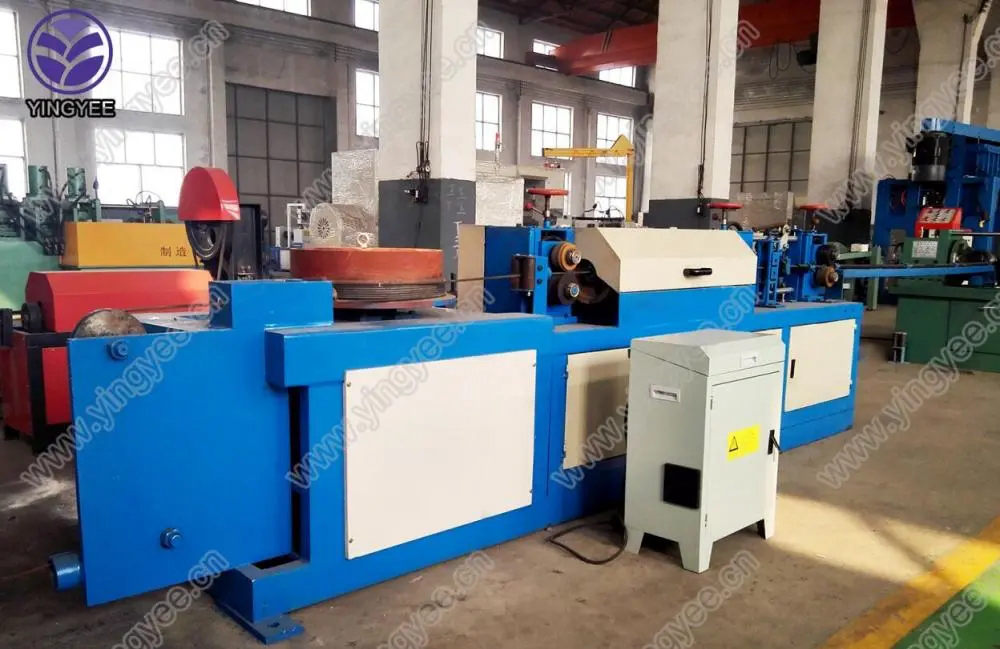
Understanding IBR Roll Forming Machines An Overview
In the world of metal fabrication, efficiency and precision are paramount. Among the various tools available to manufacturers, the IBR roll forming machine stands out as a vital piece of equipment, particularly in the production of roofing sheets and other similar applications. But what exactly is an IBR roll forming machine, and why is it so essential in today’s manufacturing landscape?
What is an IBR Roll Forming Machine?
IBR stands for Inverted Box Rib, a type of profile commonly used in roofing, wall cladding, and other building applications. The IBR roll forming machine is specialized for creating this profile through a continuous process that shapes metal sheets into the desired form. The machine operates by feeding a coil of metal through a series of rollers that progressively shape it into the IBR profile. This process not only ensures consistency in dimensions but also enhances the strength and durability of the final product.
The Process of Roll Forming
Roll forming is a cold forming process that can transform flat metal into complex shapes without the need for heating or additional material
. The IBR roll forming machine consists of several key components1. Uncoiler This device holds the metal coil and feeds it into the machine. 2. Roll Forming Station This is where the metal passes through various sets of rollers. Each set of rollers is designed to bend the metal slightly more until the desired shape is achieved. 3. Cutting Mechanism Once the metal is shaped, it needs to be cut to a specific length. The cutting mechanism, usually a hydraulic or servo-operated device, performs this task with high precision. 4. Control Panel Modern IBR roll forming machines come equipped with sophisticated control systems that allow operators to set parameters like speed, length, and shape easily.
Advantages of IBR Roll Forming Machines
1. Efficiency One of the significant benefits of using an IBR roll forming machine is the efficiency of the process. The continuous nature of roll forming means that large quantities of metal sheets can be produced quickly, reducing labor and production time.

2. Consistency The automation of the roll forming process ensures that each product has uniform dimensions, minimizing waste and ensuring quality. This is crucial in construction where precise measurements can affect the structural integrity of buildings.
3. Cost-Effectiveness Although the initial investment in an IBR roll forming machine may be higher than traditional methods, the decrease in labor costs, material waste, and production time usually results in a quick return on investment.
4. Versatility IBR roll forming machines can process various materials, including galvanized steel, aluminum, and more. Additionally, they are capable of producing different profiles, making them adaptable for various applications beyond roofing, such as wall panels, floor decking, and fencing.
Applications of IBR Profiles
IBR profiles are primarily used in the construction industry, especially in the roofing and cladding of commercial buildings. Their unique design not only contributes to aesthetic appeal but also provides excellent drainage and wind resistance. Furthermore, these roof sheets are lightweight yet strong, making them an ideal choice for a variety of structures, from warehouses to residential buildings.
Maintenance and Considerations
Like any machinery, IBR roll forming machines require regular maintenance to ensure longevity and optimal performance. This includes routine inspections, lubrication of moving parts, and monitoring wear on rollers. Choosing a reliable manufacturer for both the machine and the raw materials is crucial for achieving the best results.
Conclusion
In conclusion, the IBR roll forming machine represents a significant advancement in the metal fabrication industry. Its efficiency, consistency, cost-effectiveness, and versatility make it an invaluable tool for manufacturers focusing on quality and throughput. As construction demands continue to evolve, investing in advanced equipment like IBR roll forming machines becomes increasingly important for staying competitive in the market. Whether you're a seasoned fabricator or a newcomer to the industry, understanding the value of this technology can significantly enhance your operations.